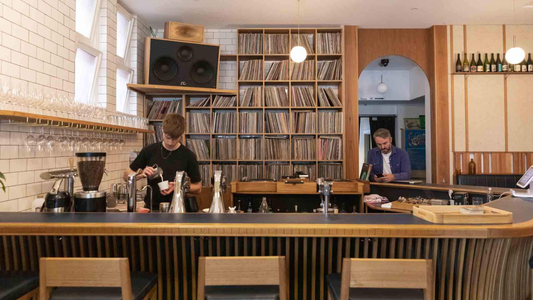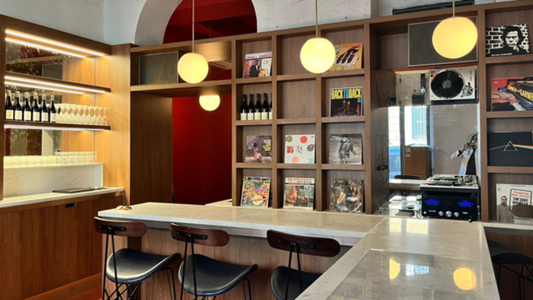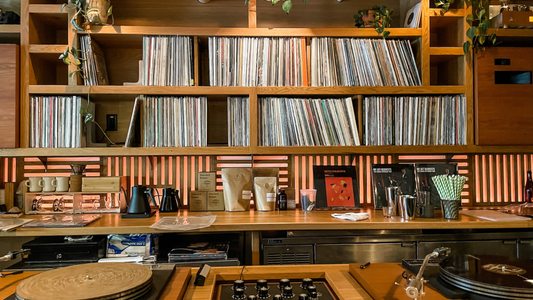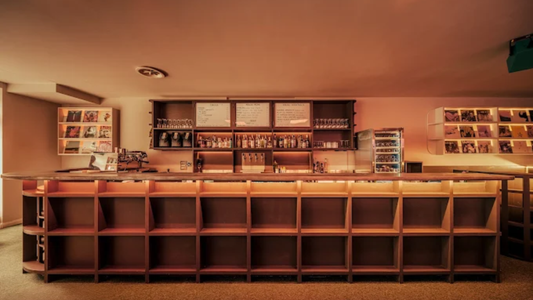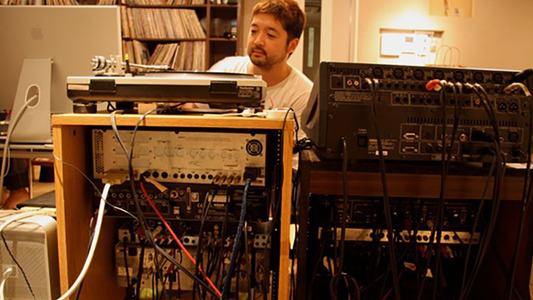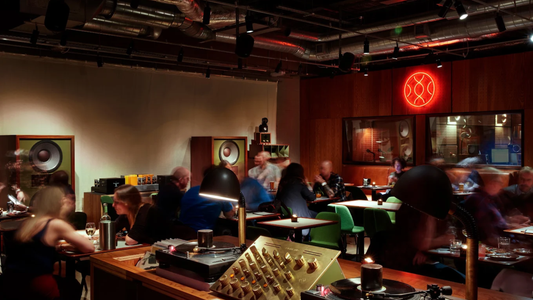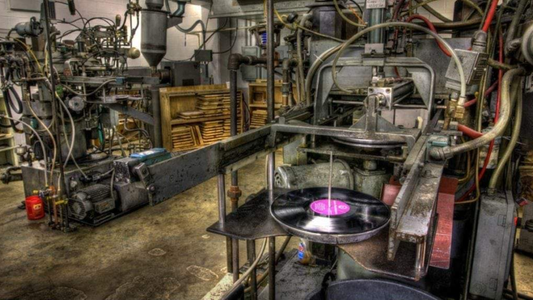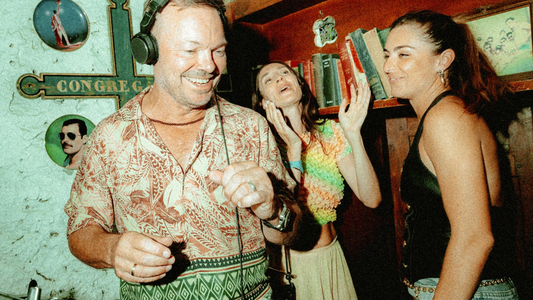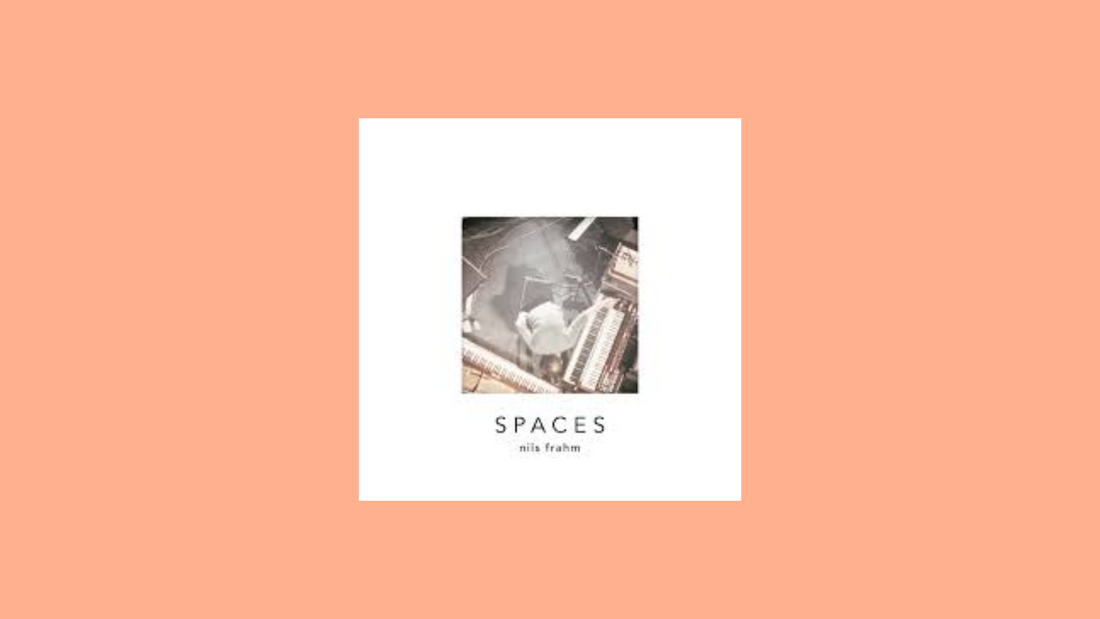
Nils Frahm – Spaces (2013)
By Rafi Mercer
The faint creak of a stool. A cough in the audience. Then a cascade of piano notes, urgent and tumbling, filling the space with motion and light. This is how Nils Frahm begins Spaces, his 2013 live album — though “live album” hardly does it justice. Rather than a simple document of concerts, Spaces is an act of translation: turning performance into architecture, memory into sound, and the room itself into instrument. It is one of the defining works of modern European minimalism, and one of the most powerful invitations to slow listening of the last decade.
Frahm, a Berlin-based pianist and composer, had already established himself with albums like Felt and The Bells, where intimacy was key. You could hear the felt hammers of the piano, the ambient noises of the recording space. But with Spaces, he widened the scope. Recorded over two years in different venues, it captures not only his compositions but the energy of performance — the imperfections, the audience presence, the sense of risk. The result is music that feels alive, changing, communal.
The album opens with “An Aborted Beginning,” a short fragment that sets the tone: electronic textures, faint echoes, a sense of atmosphere before the first piano piece arrives. “Says,” one of the record’s centrepieces, builds from a simple synth pulse into a vast crescendo, Frahm layering arpeggios until the sound becomes oceanic. It is ecstatic, yet never loses its patience. The piece swells like breath, expanding and contracting, carrying the listener with it.
“Hammers” showcases his pianistic brilliance. Notes cascade with rhythmic intensity, but the piece never feels virtuosic for its own sake. Instead, it feels like energy made audible, the piano hammered into propulsion, the audience caught in its wake. “Improvisation for Coughs and a Cell Phone” captures a quieter moment: a reminder that this is live, that interruptions are part of the ritual, that imperfection can be beautiful.
Elsewhere, “Said and Done” stretches into fifteen minutes of patient development. A simple motif repeats, expands, dissolves, returns. The piece is both meditative and dramatic, carrying the listener through phases of stillness and storm. It exemplifies Frahm’s gift: the ability to balance minimal repetition with emotional arc, structure with spontaneity.
What makes Spaces remarkable is its inclusivity. Minimalist piano can often feel austere, reserved for connoisseurs. But Frahm plays with warmth, humour, generosity. He speaks to his audiences, jokes, includes them in the process. His music, even at its most intense, feels hospitable. Women and men, newcomers and seasoned listeners, find themselves drawn in. There is no barrier of expertise. There is only the invitation to listen — slowly, attentively, together.
The cultural context matters, too. Recorded in Berlin, Spaces reflects the city’s reputation as a hub for experimentation, where classical tradition meets electronic innovation. Frahm embodies that hybridity: a pianist steeped in Bach and Chopin, but equally influenced by techno and ambient. You hear it in his layering of acoustic piano with synthesiser, in his sense of repetition, in his emphasis on space as much as note. Spaces is a bridge — between old and new, analogue and digital, individual and communal.
On vinyl, the record is especially powerful. The surface noise blends with the live ambience, making the listener feel present in the hall. The act of flipping sides suits the flow: crescendos followed by pauses, storms followed by stillness. The physicality of the medium mirrors the physicality of Frahm’s playing — his hands pounding, his body leaning, his breath audible.
What endures about Spaces is its humanity. It is not perfect, not polished. It is flawed in the best sense — alive, unpredictable, vulnerable. Frahm reminds us that minimalism need not be cold, that virtuosity need not exclude, that performance can be both art and gathering. He models a way of listening that is neither solitary nor elitist, but communal: music as space we inhabit together.
A decade on, Spaces remains one of the essential records of modern listening culture. It captures not only compositions but philosophy: the belief that sound is environment, that performance is ritual, that imperfection is beauty. It invites us to slow down, to attend, to dwell in the spaces music creates.
Rafi Mercer writes about the spaces where music matters. For more stories from Tracks & Tales, subscribe, or click here to read more.
